Энтони Хоуп - Английский язык с Энтони Хоупом. Узник Зенды / Anthony Hope. The Prisoner Of Zenda
- Название:Английский язык с Энтони Хоупом. Узник Зенды / Anthony Hope. The Prisoner Of Zenda
- Автор:
- Жанр:
- Издательство:Литагент «Восточная книга»1243df63-7956-11e4-82c4-002590591ed2
- Год:2009
- Город:Москва
- ISBN:978-5-478-01181-9
- Рейтинг:
- Избранное:Добавить в избранное
-
Отзывы:
-
Ваша оценка:
Энтони Хоуп - Английский язык с Энтони Хоупом. Узник Зенды / Anthony Hope. The Prisoner Of Zenda краткое содержание
В книге предлагается роман Энтони Хоупа «Узник Зенды», адаптированный (без упрощения текста оригинала) по методу Ильи Франка. Уникальность метода заключается в том, что запоминание слов и выражений происходит за счет их повторяемости, без заучивания и необходимости использовать словарь.
Пособие способствует эффективному освоению языка, может служить дополнением к учебной программе. Предназначено для студентов, для изучающих английский язык самостоятельно, а также для всех интересующихся английской культурой.
Английский язык с Энтони Хоупом. Узник Зенды / Anthony Hope. The Prisoner Of Zenda - читать онлайн бесплатно ознакомительный отрывок
Интервал:
Закладка:
“Which way?” asked Black Michael (куда: «по которой дороге»? – спросил Черный Михаэль).
“To the Castle, your Highness,” urged his companion (к замку, ваше высочество, – убеждал его спутник; to urge – понуждать, подгонять; убеждать, настаивать ). “There we shall learn the truth (там мы узнаем правду).”

Nearer and nearer came the hoofs. The moon shone out now clear and full, so that the road was white with it. The ground was hard, and we had left no traces.
“Here they come!” whispered Sapt.
“It’s the duke!”
“I thought so,” he answered.
It was the duke; and with him a burly fellow whom I knew well, and who had cause to know me afterwards – Max Holf, brother to Johann the keeper, and body-servant to his Highness. They were up to us: the duke reined up. I saw Sapt’s finger curl lovingly towards the trigger. I believe he would have given ten years of his life for a shot; and he could have picked off Black Michael as easily as I could a barn-door fowl in a farmyard. I laid my hand on his arm. He nodded reassuringly: he was always ready to sacrifice inclination to duty.
“Which way?” asked Black Michael.
“To the Castle, your Highness,” urged his companion. “There we shall learn the truth.”
For an instant the duke hesitated (мгновение герцог колебался).
“I thought I heard hoofs (мне показалось, я слышал /стук/ копыт),” said he.
“I think not, your Highness (думаю, нет, ваше высочество).”
“Why shouldn’t we go to the lodge (почему бы нам не поехать к охотничьему домику)?”
“I fear a trap (я боюсь западни). If all is well, why go to the lodge (если все в порядке, зачем туда ехать)? If not, it’s a snare to trap us (если нет, то это ловушка, чтобы заманить нас; to trap – ставить ловушки, капканы; заманивать ).”
Suddenly the duke’s horse neighed (внезапно лошадь герцога заржала). In an instant we folded our cloaks close round our horses’ heads (через мгновенье мы обернули головы наших лошадей плащами; to fold – складывать, сгибать; завертывать ), and, holding them thus, covered the duke and his attendant with our revolvers (и, удерживая их таким образом, нацелили на герцога и его спутника наши револьверы; to cover – накрывать, покрывать; держать под прицелом; attendant – сопровождающее, обслуживающее лицо; спутник ). If they had found us (если бы они нас обнаружили), they had been dead men, or our prisoners (то стали бы либо мертвецами, либо нашими пленниками).
Michael waited a moment longer (Михаэль подождал еще минуту; longer – дольше ). Then he cried (затем он крикнул):
“To Zenda, then!” and setting spurs to his horse, galloped on (тогда к Зенде! – и, дав коню шпоры, поскакал галопом).
Sapt raised his weapon after him (Сэпт поднял ему вслед свое оружие = свой револьвер), and there was such an expression of wistful regret on his face (и такое выражение тоскливого сожаления было = отразилось на его лице) that I had much ado not to burst out laughing (что мне стоило огромных усилий не рассмеяться; to have much ado – испытывать большие затруднения; ado – суета, суматоха; хлопоты, затруднения ).
For ten minutes we stayed where we were (еще минут десять мы оставались в укрытии: «стояли там, где мы были»).

For an instant the duke hesitated.
“I thought I heard hoofs,” said he.
“I think not, your Highness.”
“Why shouldn’t we go to the lodge?”
“I fear a trap. If all is well, why go to the lodge? If not, it’s a snare to trap us.”
Suddenly the duke’s horse neighed. In an instant we folded our cloaks close round our horses’ heads, and, holding them thus, covered the duke and his attendant with our revolvers. If they had found us, they had been dead men, or our prisoners.
Michael waited a moment longer. Then he cried:
“To Zenda, then!” and setting spurs to his horse, galloped on.
Sapt raised his weapon after him, and there was such an expression of wistful regret on his face that I had much ado not to burst out laughing.
For ten minutes we stayed where we were.
“You see,” said Sapt, “they’ve sent him news that all is well (видите, ему прислали вести, что все в порядке).”
“What does that mean?” I asked (что это значит? – спросил я).
“God knows,” said Sapt, frowning heavily (Бог /его/ знает, – сказал Сэпт, сильно хмурясь; heavily – тяжело; сильно, весьма ). “But it’s brought him from Strelsau in a rare puzzle (но он приехал из Стрелсо здорово озадаченным; to be in a puzzle – быть в смущении, недоумении; rare – редкий; исключительный, необычайный / разг. / ; puzzle – загадка, головоломка ).”
Then we mounted, and rode as fast (затем мы вскочили в седла и поскакали настолько быстро) as our weary horses could lay their feet to the ground (насколько наши утомленные лошади были в состоянии переставлять ноги: «класть ноги на землю»). For those last eight miles we spoke no more (на протяжении тех последних восьми миль мы больше не разговаривали). Our minds were full of apprehension (мы: «наши умы» были полны дурных предчувствий). “All is well.” What did it mean («все в порядке» – что это означало)? Was all well with the King (было ли все в порядке с королем)?
At last the lodge came in sight (наконец, показался охотничий домик; to come in sight – появиться, показаться ). Spurring our horses to a last gallop (пришпорив коней в последнем рывке; gallop – галоп; быстрая езда ), we rode up to the gate (мы подскакали к воротам). All was still and quiet (все было тихо и спокойно). Not a soul came to meet us (ни одна душа не вышла встретить нас). We dismounted in haste (мы торопливо спешились). Suddenly Sapt caught me by the arm (вдруг Сэпт схватил меня за руку).
“Look there!” he said, pointing to the ground (взгляните сюда, – сказал он, указывая на землю).
I looked down (я посмотрел вниз). At my feet lay five or six silk handkerchiefs (у моих ног лежало пять или шесть шелковых платков), torn and slashed and rent (порванных и порезанных; to tear – рвать; rent – разорванный, порванный; to rend – отрывать, отдирать; рвать, разрывать ). I turned to him questioningly (я повернулся к нему с вопросительным /видом/; question – вопрос ).

“You see,” said Sapt, “they’ve sent him news that all is well.”
“What does that mean?” I asked.
“God knows,” said Sapt, frowning heavily. “But it’s brought him from Strelsau in a rare puzzle.”
Then we mounted, and rode as fast as our weary horses could lay their feet to the ground. For those last eight miles we spoke no more. Our minds were full of apprehension. “All is well.” What did it mean? Was all well with the King?
At last the lodge came in sight. Spurring our horses to a last gallop, we rode up to the gate. All was still and quiet. Not a soul came to meet us. We dismounted in haste. Suddenly Sapt caught me by the arm.
“Look there!” he said, pointing to the ground.
I looked down. At my feet lay five or six silk handkerchiefs, torn and slashed and rent. I turned to him questioningly.
“They’re what I tied the old woman up with (это те, которыми я связал старуху),” said he. “Fasten the horses, and come along (привяжите коней и пойдемте).”
The handle of the door turned without resistance (дверная ручка повернулась легко: «без сопротивления»). We passed into the room which had been the scene of last night’s bout (мы прошли в комнату, представлявшую собой сцену вчерашней ночной пирушки; last – последний; bout – припадок, приступ; кутеж ). It was still strewn with the remnants of our meal and with empty bottles (повсюду все еще валялись остатки нашего ужина и пустые бутылки; to strew – разбрасывать; усеивать, усыпать ).
“Come on,” cried Sapt, whose marvellous composure had at last almost given way (идемте, – воскликнул Сэпт, которому, в конце концов, почти изменило его удивительное хладнокровие; to give way – отступать, сдаваться ).
We rushed down the passage towards the cellars (мы бросились по коридору к подвалам). The door of the coal-cellar stood wide open (дверь угольного подвала была: «стояла» открытой настежь; to stand; wide – широко ).
“They found the old woman (они нашли старуху),” said I.
“You might have known that from the handkerchiefs (вы могли бы догадаться об этом по платкам),” he said.
Then we came opposite the door of the wine-cellar (затем мы подошли к двери напротив, /ведущей/ в винный погреб). It was shut (она была закрыта). It looked in all respects as it had looked (она выглядела в точности так, как выглядела; in all respects – во всех отношениях ) when we left it that morning (когда мы оставили ее тем утром).
Читать дальшеИнтервал:
Закладка:
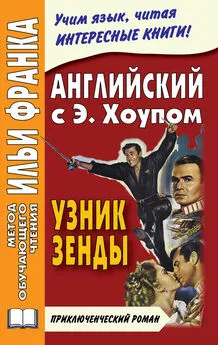
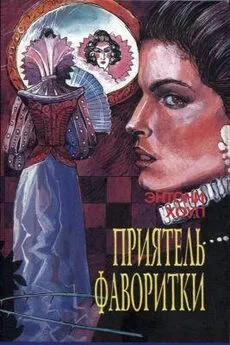
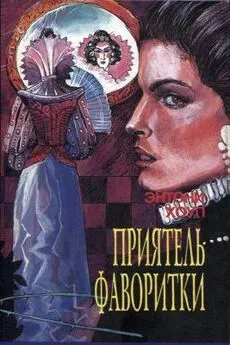
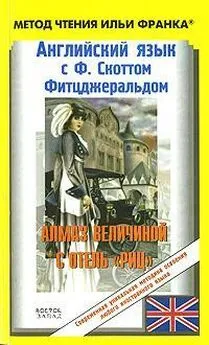
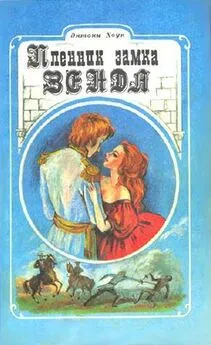
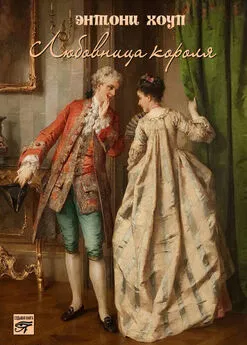
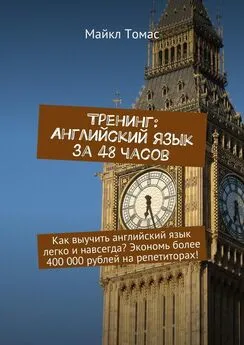
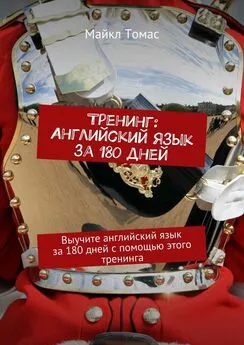
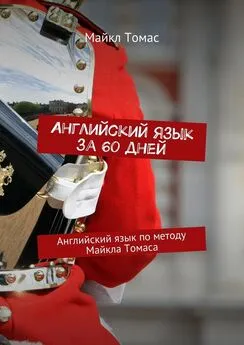
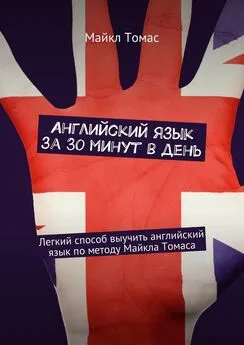
![Энтони Хоуп - Пленник Зенды. Месть Руперта [сборник]](/books/1090466/entoni-houp-plennik-zendy-mest-ruperta-sbornik.webp)